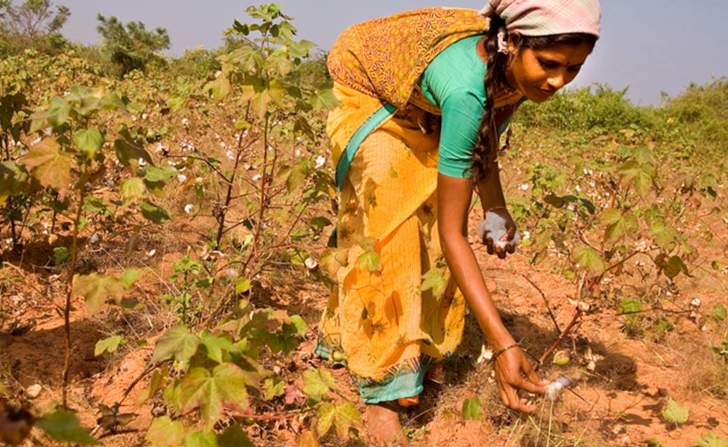Monsanto is losing millions on failed GM cotton. The company illegally pushed a form of Bt cotton into India and Africa more than a decade ago, but farmers are now pushing back by planting their own indigenous seed.
Monsanto is accused of writing laws and then breaking them to enter the market in India, but after more than 300,000 farmer deaths between 1995 and 2013, many of them attributed to Monsanto, the company is finally paying for their misdeeds. The corporation’s greed is linked to farmer suicides throughout Maharashtra, considered the ‘Cotton Belt’ in India.
The Indian government is now actively promoting the use of indigenous seed, and has called Monsanto out for profiteering illegally on Bt cotton seed.
Monsanto has already lost nearly $75 million in royalties this year (5 billion rupees) due to the change in seed choice by farmers. Sales in India have fallen by 15 percent, and though this is a relatively small market share, it is still making a huge impact on the company’s bottom line.
This could be the end of Monsanto, altogether, in India. Keshav Raj Kranthi, head of India’s Central Institute for Cotton Research said:
“Just wait for the crucial three to four years to see a complete, natural turnaround. By then most farmers will give up Bt cotton and go for the indigenous variety.”
Notably, Burkina Fasso in West Africa also recently rejected Monsanto’s Bt cotton seed after finding the seed produced a poor quality cotton that fetched low prices for the farmers who bothered to grow it…
While Monsanto argues that its genetically modified seed is better, many studies state that their comparisons were not looking at hybridized and indigenous seed (not GM seeds) that give better crop quality and higher yields.
Bt cotton is genetically modified seed which contains Bacillus thuringiensis, a bacterium that produces toxins harmful to a variety of insects, including, supposedly, bollworms that attack cotton; however, like weeds that have become impervious to RoundUp, many organisms become even stronger when introduced to genetic mutations of Mother Nature’s perfection. Monsanto even admits that insect resistance to Bacillus thuringiensis is ‘natural’ and ‘to be expected’.
Indeed, the indigenous varieties of cotton have fared better against the bollworm, whitefly, drought, and other dangers that cotton farmers face.
Monsanto (doing business in India as Mahyco Monsanto Business Limited) has even threatened to pull out of India completely, calling the bluff of a government who threatened to lower their royalties; but the government was undeterred, cut their seed royalties by 74 percent, and capped seed prices.
This will bring much relief to cotton farmers in India, but with 96 percent of India’s cotton crop being developed with Monsanto’s Bt cotton, it could take generations to recapture the indigenous crop completely, while bankrupting the corrupt Monsanto simultaneously. As Sanjeev Kumar Balyan, India’s Junior Agricultural Minister has said of Monsanto, “The greed has to end.” (via UndergroundReporter)
If you like this idea, be sure to share it with your friends and inspire someone you know. Anything becomes possible with just a little inspiration…

